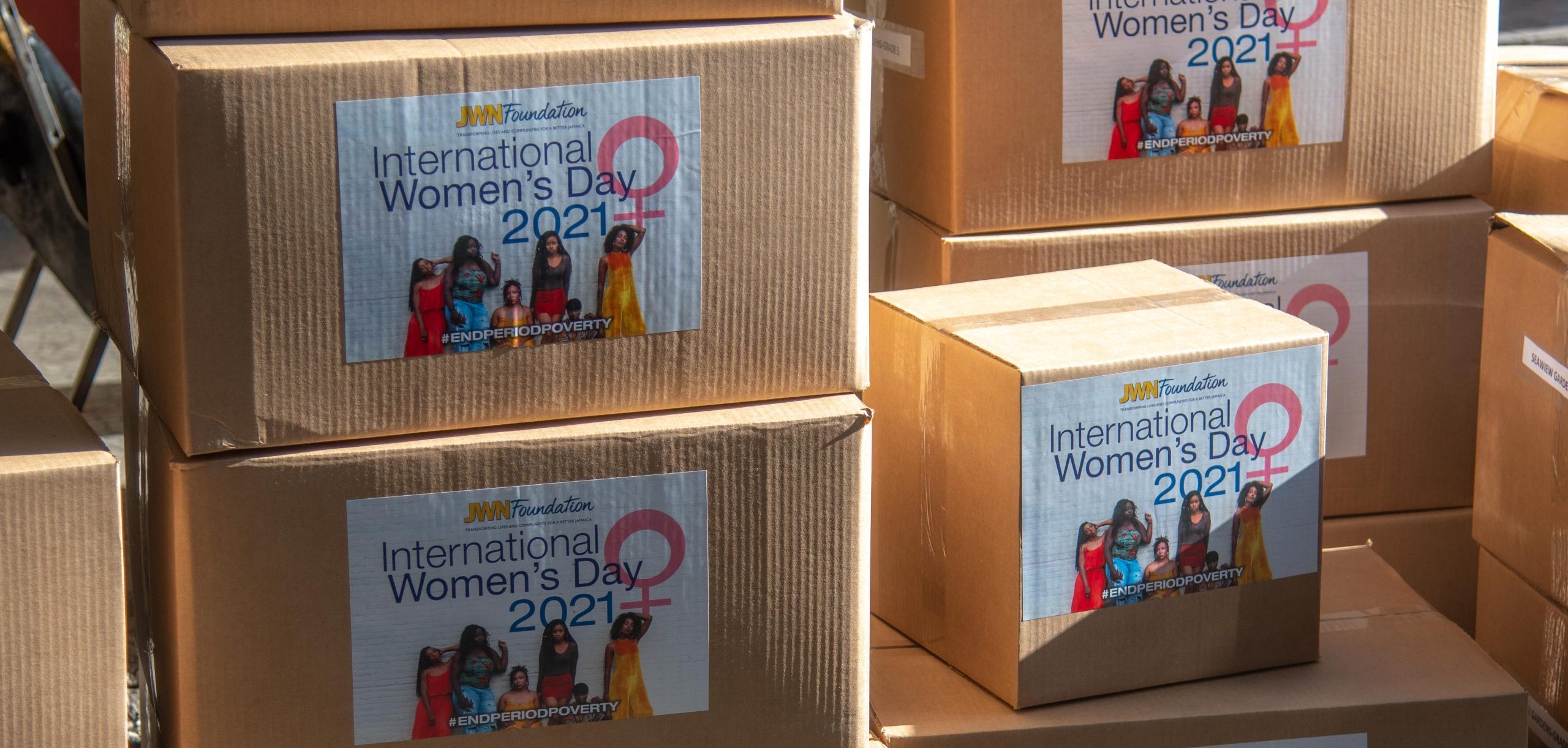The J Wray and Nephew Foundation (JWNF) yesterday focused its International Women’s Day (IWD) celebrations on highlighting the issue of period poverty, in keeping with the IWD theme ‘Women in Leadership: Achieving an equal future in a COVID-19 world’.
Following its first activity in 2020, which provided 650 care packages to 12 institutions, JWNF said it realised that the novel coronavirus pandemic has worsened conditions for many of the girls that the organisation supports, many of whom are unable to afford the cost of sanitary napkins.
In its continued drive to address the issue of period poverty, JWNF donated 2,100 packs of sanitary napkins to 1,046 girls across 13 institutions in Kingston, St Elizabeth and Clarendon.
“When girls don’t have period products, not only do they feel unprotected, but it also puts their confidence, dignity and education at risk,” said Tanikie McClarthy Allen, CEO of JWNF. “At JWNF, we recognise that it has become harder for parents to support their children with not just food but other essential items, which means that some are forced to choose between basic food items and purchasing a pack of sanitary napkins for their daughters.
“Period poverty is a serious issue and one that gets lost among all the other challenges being faced by women in Jamaica during the COVID-19 pandemic. The data shows that one in every five girls misses school due to lack of menstrual products, and that women have been disproportionally affected by the pandemic.
“When girls don’t have period products, not only do they feel unprotected, but it also puts their confidence, dignity and education at risk”
“We want our girls to be able to focus on their education, which will not just transform their lives but also that of their families,” stated McClarthy Allen.
The organisations that benefited from the programme were Seaview Gardens, Seaward, St Patrick’s and Balmagie primary schools, as well as the Women’s Centre of Jamaica, Mustard Seed Communities and Maxfield Park Children’s Home in Kingston.
In Clarendon, the Race Course and York Town primary schools and the Clarendon Infirmary, and in St Elizabeth, Siloah Primary School as well as the St Elizabeth Infirmary all benefited from the programme.
McClarthy Allen underscored, “In addition to our distribution of sanitary napkins, we will also be producing videos for social media, highlighting women in leadership within J Wray and Nephew’s Supply Chain Department, an area that is traditionally male-dominated. We hope their stories will encourage our girls and be inspirations for them in choosing their future careers.”
The JWNF operates under three pillars – education, culture and social inclusion – and focuses its attention in areas surrounding its business operations at Spanish Town Road in Kingston, New Yarmouth in Clarendon and Appleton Estate in St Elizabeth.

